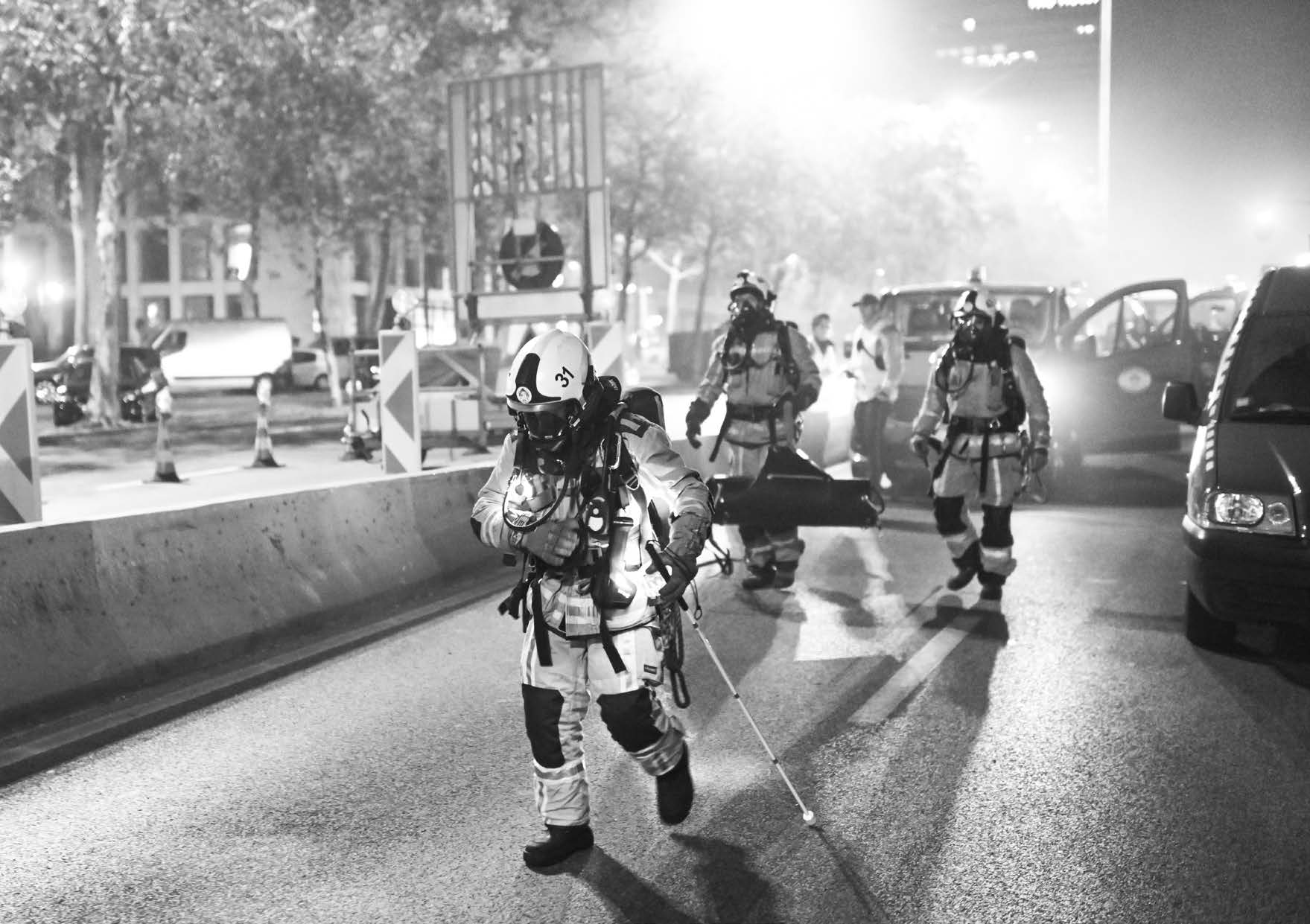Integrated networks
Mutual support and the sharing of skills are crucial for effectively managing crises. Strong networks facilitate the smooth running of institutions and enable the exchange of best practices, essential for the development of each partner as well as the existing procedures.
Network of regional crisis centres
The Brussels Regional Crisis centre RCCR (Regionaal Crisiscentrum Centre de crise Régional) is a multidisciplinary centre of expertise and information on security, public order and incident management. The RCCR is part of the network of regional crisis centres, which also includes CORTEX and CCVO, and aims to provide a harmonised vision of the roles and missions of each centre.
Regional administrations network
Safe.brussels works closely with all the Brussels' institutional players involved in emergency situations. To develop a crisis management culture and strengthen existing partnerships, safe.brussels has created a network of Brussels administrations.
Dir-PC-Ops Network
In an emergency situation, the High Official - Governor for crisis management or the Mayor in charge of strategic coordination for the crisis must designate or confirm the Dir-PC-Ops (Director of the Operations Command Post). This certified operational manager leads an operational command post.
Launched in 2023, the Brussels-based Dir-PC-Ops network enables its members to strengthen their mutual knowledge and take part in feedback sessions, both in terms of exercises and real-life situations. This network is also setting up a multidisciplinary Dir-PC-Ops reserve.
Why develop integrated networks?
Networks play a crucial role in crisis resilience. By facilitating cooperation and the sharing of expertise between institutions, BRU response contributes to:
- Improving the coordination and efficiency of partners in the event of interventions.
- Sharing best practices and optimised procedures.
- Strengthening partners' skills and knowledge.
 Integrated networks
Integrated networks
 Training and exercises
Training and exercises
 Citizen participation
Citizen participation





